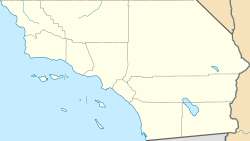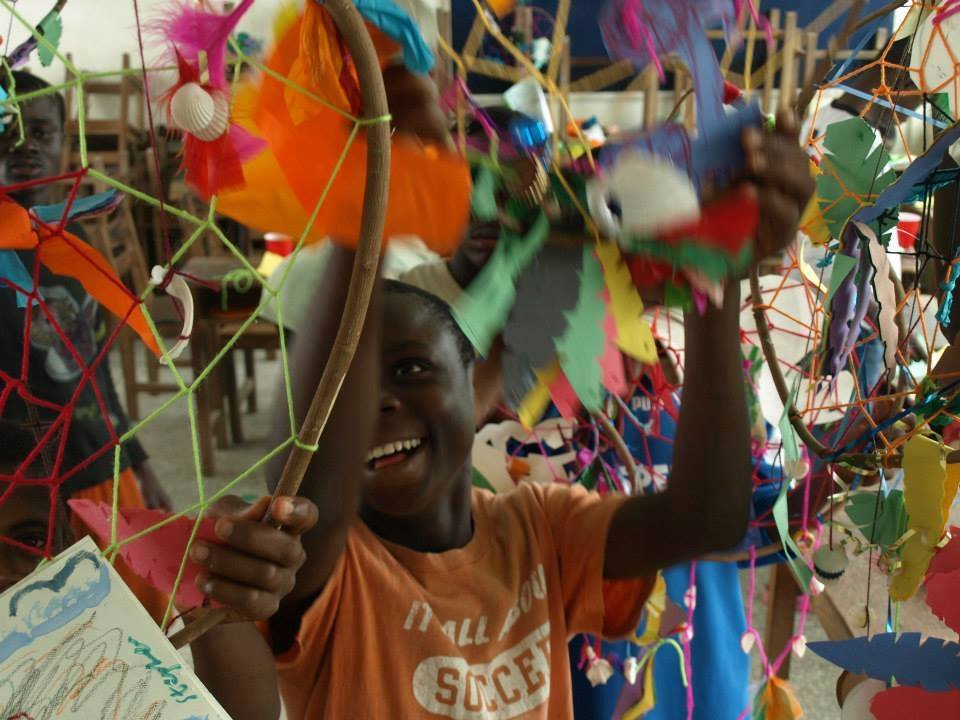A guest blog post by Mary A. Wood, Ph.D., co-Chair of the M.A. Program in Engaged Humanities and the Creative Life at Pacifica Graduate Institute.
“The soul should always stand ajar, ready to welcome the ecstatic experience.” —Emily Dickinson
There are moments in life when time seems to stand still—moments when we find ourselves transfixed, and eventually transformed. These moments can be cosmic in scale, as reflected in the awe that we feel when beholding a rare solar eclipse, or an approaching storm. These moments may also be quite intimate, but no less moving, such as when we witness an animal emerging from hiding or when we hear an exquisite song. We recognize, and always remember these moments because they are announced by bodily sensations; we gasp, our hearts beat faster, and tears often flow. Our bodies tell us that the ordinary has given way to the extraordinary. These experiences are best described as “aesthetic,” as we find ourselves living, at least for a few moments, as creatures that are gloriously and achingly alive.
Read More
Posted in:
Joseph Campbell,
The Psyche,
James Hillman,
archetypes,
transformative,
C.G. Jung,
Psychology,
art,
soul,
depth psychology,
symbol,
mythological,
humanities,
sacred,
symbolism,
Spiritual
A blog post by Melissa Ruisz Nazario
At this time of year in the northern hemisphere, the earth’s axis orients away from the sun, temperatures cool, and many of us celebrate with loved ones some form of thankfulness and respite from work–modern iterations of our ancestors’ harvest festivals.
Though the concept of gratitude is also ancient, it has become a bit of a modern buzzword. So, is gratitude really as beneficial as the masses say it is? Actually, yes. Robert A. Emmons and Robin Stern, researchers known for their work in studying gratitude, reviewed studies on the subject and list several of the physical, emotional, and psychological outcomes of cultivating gratitude in “Gratitude as a Psychotherapeutic Intervention.” [1]
Read More
Posted in:
The Psyche,
archetypes,
transformative,
Psychology,
soul,
depth psychology,
mythological,
Spiritual,
resources
By now, you've likely read or heard the news of the mass shooting in Thousand Oaks, California. Dr. Stephen Aizenstat, Founding President and Chancellor of Pacifica Graduate Institute, shared this letter regarding the tragedy with many in our community, and we wanted to share its message of hope with all of you.
Read More
Posted in:
Current Affairs,
Trauma,
Social Justice,
Psychology,
graduate school,
depth psychology,
Pacifica Students,
Pacifica Graduate Institute,
collective trauma,
relationship,
relationships,
love,
Spiritual
A blog post by Melissa Ruisz Nazario
Called Armistice Day or Remembrance Day in other countries, we originally commemorated November 11th because of the signing of the treaty that halted fighting during World War I. Today, known as Veterans Day in the U.S., the focus has shifted a bit, as we show respect and gratitude to those who previously served in our armed forces. We often associate the words “service” and “sacrifice” with being in the military because a mission’s success requires things that aren’t as common in the civilian world: working twelve-hour shifts for months while deployed thousands of miles away from loved ones, missing important birthdays and holidays, and for many, having to put one’s self in harm’s way in a combat zone, risking life and mental wellness.
Read More
Posted in:
Therapist,
Psychotherapy,
archetypes,
clinical psychology,
Psychology,
depth psychology,
military,
resources
A blog post by Melissa Ruisz Nazario, based on an interview with Stacey Shelby, RCC, Ph.D., conducted by Bonnie Bright, Ph.D.
Listen to the full audio interview with Stacey Shelby here. (approx. 30 minutes)
At first, Stacey Shelby, RCC, Ph.D., didn't want to explore the Wild Woman Archetype for her research while in the M.A./Ph.D. Program in Depth Psychology with Specialization in Jungian and Archetypal Studies at Pacifica Graduate Institute. Part of it was due to the type of research she would conduct and the effect it would have on her life. When authoring the book Tracking the Wild Woman Archetype: A Guide to Becoming a Whole, In-divisible Woman published earlier this year, she used a research methodology called alchemical hermeneutics, as described by Dr. Robert Romanyshyn, Pacifica Graduate Institute Professor Emeritus, in his book, The Wounded Researcher: Research with Soul in Mind.
In the introduction to Tracking the Wild Woman Archetype, Stacey defines alchemical hermeneutics as “an unconventional methodology not readily found in traditional academic institutions, and it acknowledges that researchers are often called to their work through personal wounding and complexes. This research methodology is an alchemical process that affects the researcher.”
Read More
Posted in:
The Psyche,
Therapist,
Psychotherapy,
archetypes,
nature,
clinical psychology,
Psychology,
depth psychology,
symbol,
dreams,
individuation,
Pacifica Students,
Pacifica Graduate Institute,
alchemist,
jungian,
relationship,
relationships
A blog post by Melissa Ruisz Nazario, based on an interview with Mai Breech, conducted by Bonnie Bright, Ph.D.
Listen to the full audio interview with Mai Breech here. (approx. 27 minutes)
Mai Breech, a Psy.D. doctoral student in Clinical Psychology at Pacifica Graduate Institute, has a long history of working with orphans and foster children. In 2007, she founded the Children’s Art Village, a grassroots non-profit organization providing art and music to children in Ghana, India, and Nepal so that they can express their creative selves through a means that doesn’t require language, but rather utilizes their creativity. Over the years, the Children’s Art Village has served over 3,000 children annually, and continues to do so. Typically, the programs are summer programs, offering art and music camps for these children in very different orphanages that she partners with.
Read More
Posted in:
The Psyche,
Therapist,
Trauma,
Psychotherapy,
clinical psychology,
Psychology,
graduate school,
creativity,
depth psychology,
dreams,
Pacifica Students,
Pacifica Graduate Institute,
relationship,
relationships
A blog post by Melissa Ruisz Nazario, based on an interview with Daniel Ballin, LCSW, conducted by Bonnie Bright, Ph.D.
Listen to the full audio interview with Daniel Ballin here. (approx. 31 minutes)
“Somatic studies” is an umbrella term that includes somatic psychology (working with the experience of the body to support mental health), somatic movement therapy(working with the experience of the body to promote improved movement functioning), and many forms of complementary and alternative medicine. A somatic perspectivealso flourishes within the fields of education, philosophy, sociology, anthropology, performance studies, and dance. [1]
Read More
Posted in:
Trauma,
Alumni,
Psychology,
graduate school,
depth psychology,
Pacifica Graduate Institute,
somatic
A blog post by Melissa Ruisz Nazario, based on an interview with Jesse Jacob conducted by Bonnie Bright, PhD
Listen to the full audio interview with Jesse Jacob here. (approx. 31 minutes)
Jesse Jacob does not settle for status quo assumptions or lazy thinking in depth psychology. He finds the term “depth psychology” strange because it implies other psychologies are then shallow. A 4th year Clinical Psychology PsyD student at Pacifica, Jesse previously studied language to understand how it shapes and affects an individual’s thinking. In his interview with Bonnie Bright, he provides alternative perspectives on commonly used depth psychological phrases and concepts. For example, he recalls a fellow student in his cohort saying, “Depth psychologists treat the whole person,” to which Jesse responded, “So do other psychologies only treat half the person?”
Read More
Posted in:
clinical psychology,
Psychology,
graduate school,
depth psychology,
Pacifica Graduate Institute,
Spiritual
Dr. Chalquist will be presenting “Storytelling Nature Myths: A Project of Reenchantment” to the Joseph Campbell Foundation Mythological RoundTable® Group of OPUS on Sunday, August 12th from 5:30-7:30pm at Pacifica’s Ladera Lane campus. This event is free and open to the public. For more info, visit opusarchives.org/events.
Read More
Posted in:
Pacifica Events,
Opus Archives
Many students and alumni have said that when they started their academic careers at Pacifica, they did so because it felt like they had found their calling, or that they had come home. Some say that is due to the tranquil and meditative environments our campuses provide for learning and growth. Another reason, however, is due to the student services we provide here. When you come to Pacifica, you not only join an inclusive learning community of students, but you also gain access to dedicated and caring Student Services departments throughout your entire academic career here.
Read More
Posted in:
graduate school,
Education,
Pacifica Graduate Institute,
student services,
resources













